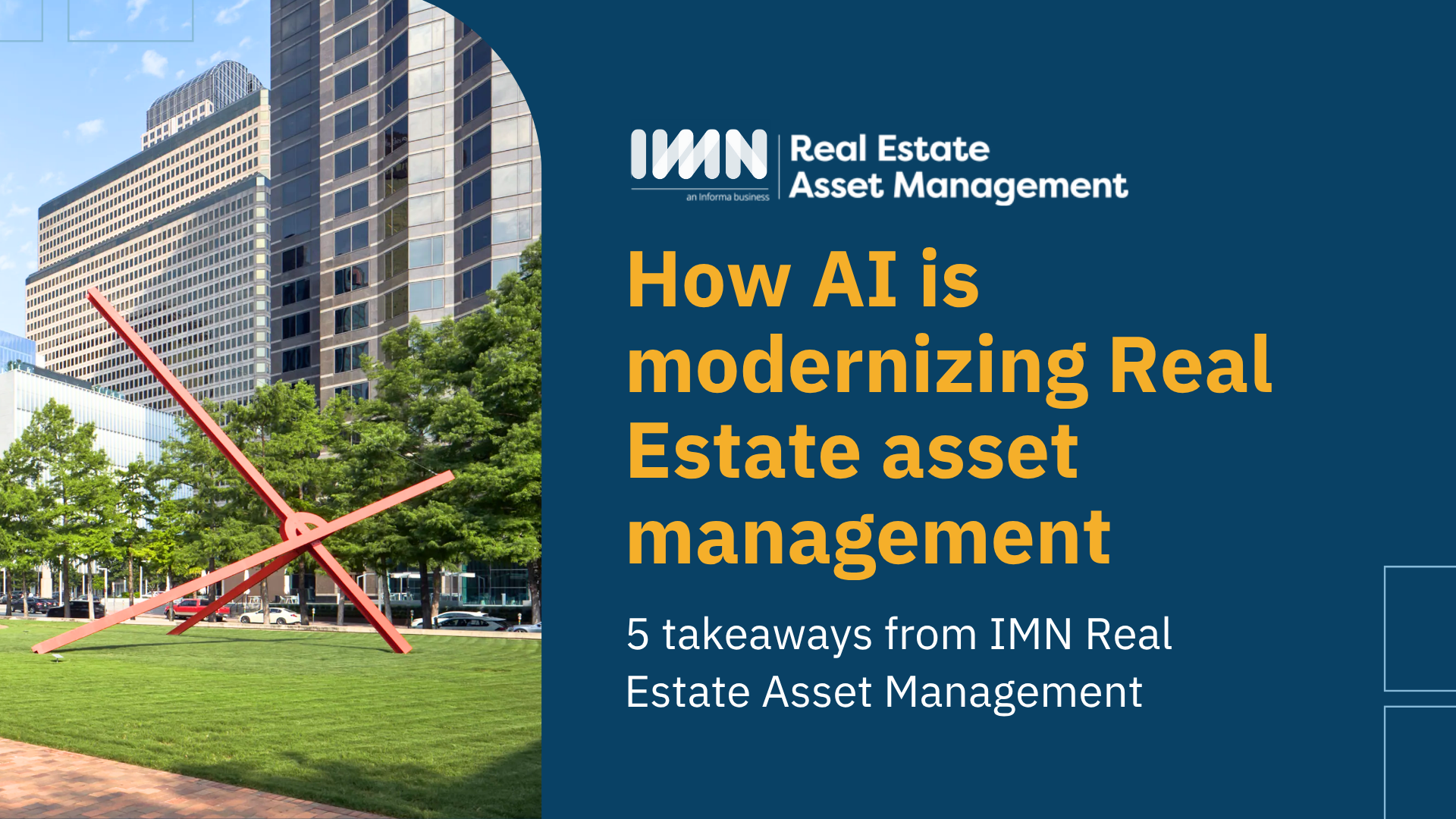5 takeaways from IMN Real Estate Asset Management
At the 2025 IMN Real Estate Asset Management Forum, industry leaders got together to discuss how emerging tech is helping real estate asset management firms adopt emerging technology, particularly AI, to modernize their operations.
Titled “Intelligent Operations: Leveraging Technology, AI, and Data to Optimize CRE Asset Management” and moderated by Logan Brown of TeleCloud, the panel included Chris Antenessi from PredictAP, Mark Limpert from Orion Real Estate Partners, Jonathan Shopay from Harbert Management Corporation, Stephanie Grayson from Cambio, and Jeff Wilson of Pereview.
The session explored how AI, automation, and data standardization are reshaping the business of commercial real estate. Across every perspective, from software engineering to portfolio management, one primary theme stood out: AI’s value is determined by the quality of the data driving the technology.
1. Data discipline matters more than hype
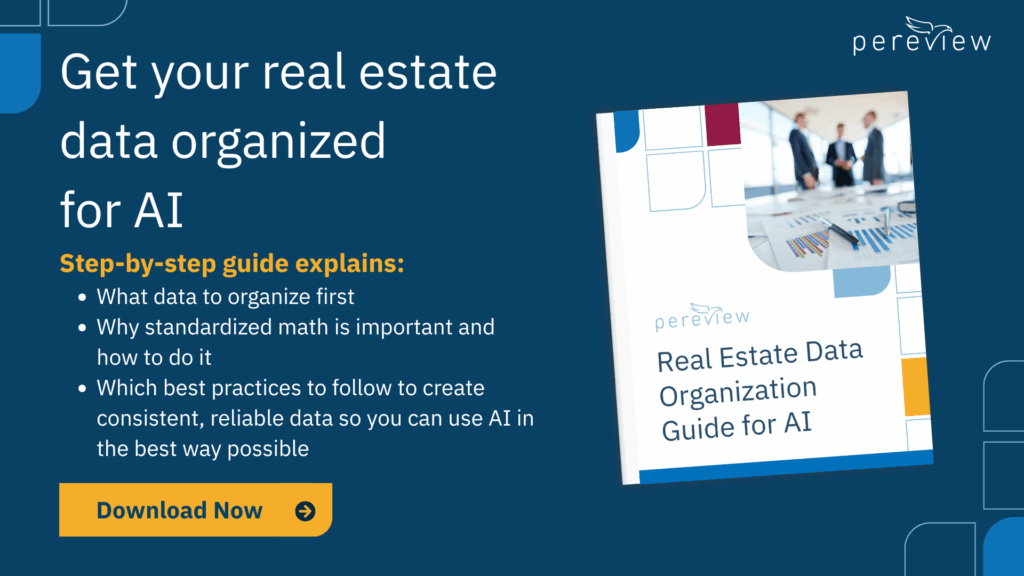
Panelists agreed that AI is now embedded in nearly every stage of the investment lifecycle, from budgeting and forecasting to reporting and compliance. But while the tools are advancing quickly, the conversation emphasized a crucial distinction: success depends less on experimentation and more on data discipline.
Wilson explained that Pereview’s approach to AI starts with practicality. Rather than chasing futuristic automation, the company focused on solving foundational a foundational problem – data ingestion – ensuring property-level and loan data arrive clean, standardized, and ready for analysis.
The first step before any technology project, whether it’s going down the AI road or something else, is to understand and appreciate the importance of the people and processes in place.
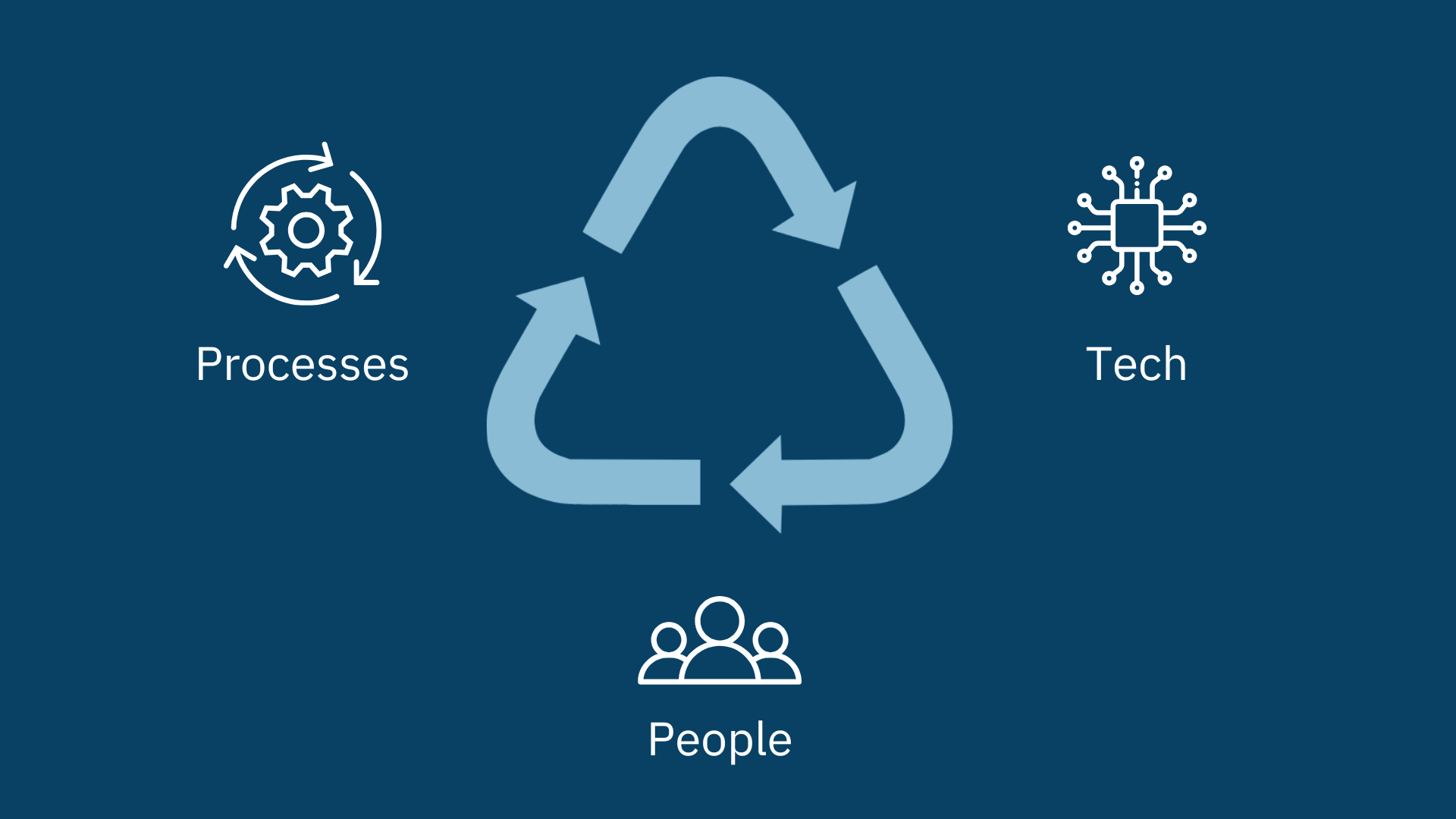
“Every IT project has three legs of the stool: tech, people, and process. And in this industry, we always forget the people and processes sides,” Wilson said. “You can’t just throw a bunch of technology at a problem like taking some aspiring and thinking that alone is going to solve the problem.”
2. Automation and intelligence drive real efficiency gains

Panelists from across the industry shared how AI and automation are already producing measurable results:
- Faster workflows: PredictAP has used AI to cut invoice processing times by 70% and triple payout speed.
- Smarter capital planning: Cambio’s AI platform has helped large ownership groups identify millions in missed efficiency opportunities and potential compliance fines.
- Better data visibility: Asset managers are consolidating live financial and operational data from multiple systems, creating near-real-time dashboards that drive faster decisions.
Wilson called this the “first inning or two” of AI in real estate – still in the early stages but promising. The next phase, he said, will be less about automation for its own sake and more about creating context: connecting every data point so teams can see the complete financial picture of their portfolio in one view.
3. Tech is changing how firms scale – not why
Panelists also discussed how intelligent operations are beginning to reshape organizational structures. Many firms are already moving toward centralized or hybrid staffing models, supported by automation at the property level.
AI-enabled leasing assistants, rent-setting tools, and communication bots are reducing repetitive work – freeing teams to focus on strategy, analysis, and relationship management. Smaller firms in particular are using technology to operate with the efficiency of a larger firm.
As Wilson observed, once operational and financial data are integrated, AI becomes an amplifier, enabling firms to scale performance without scaling headcount.
4. Buy, don’t build – and start experimenting now
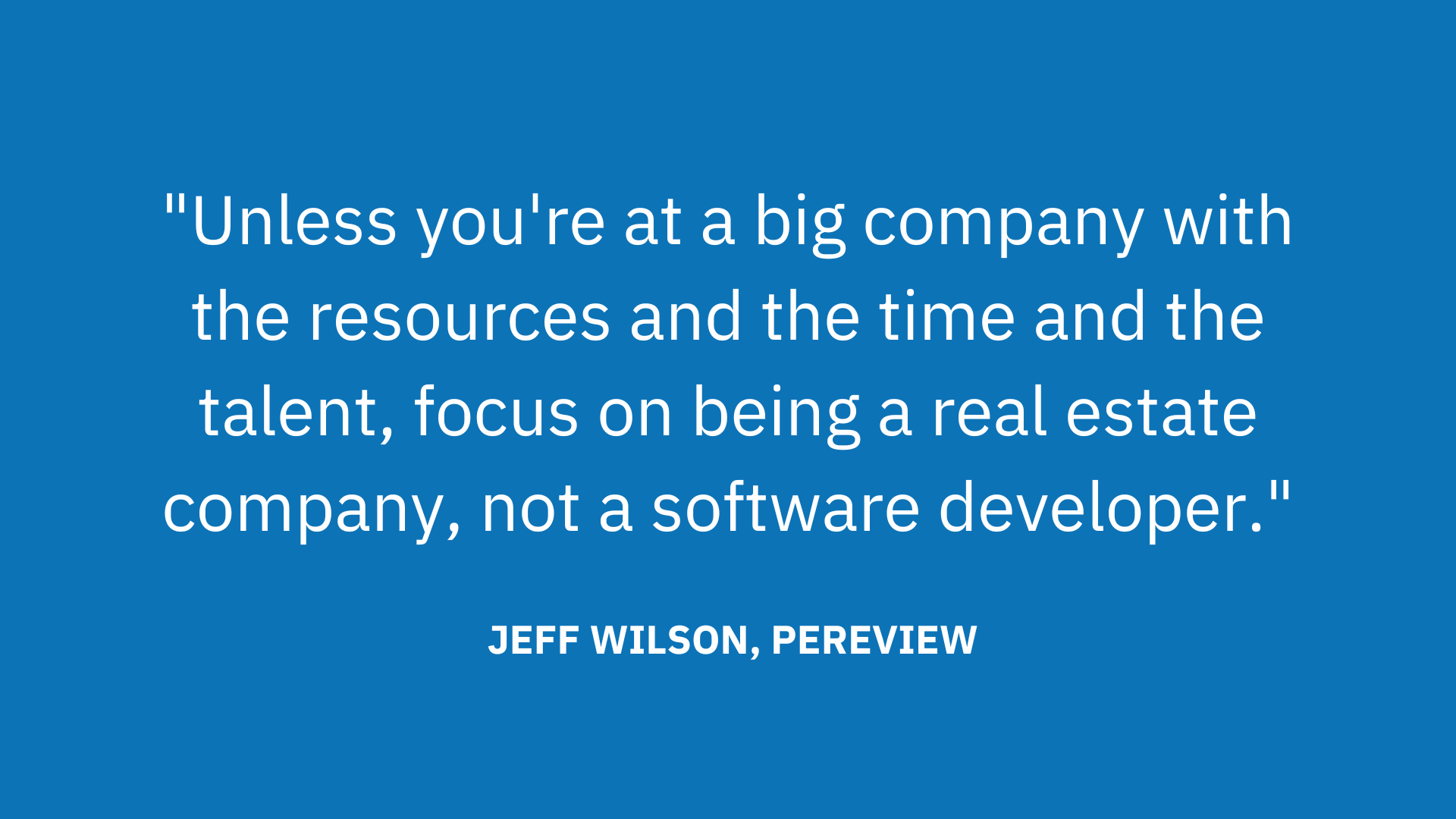
While the tools are maturing rapidly, the panelists agreed that most real estate companies should avoid building AI infrastructure internally. Wilson encouraged firms to “focus on being a great real estate company, not a software developer,” recommending that teams start small with proven tools – from Pereview’s integrated platform to mainstream AI assistants like Copilot.
The consensus? The greatest barrier to AI adoption isn’t technical – it’s cultural. Firms that begin experimenting today, even with simple automation tasks, will have the internal knowledge and comfort to scale as the technology advances.
5. The path forward: Intelligent operations through integrated data
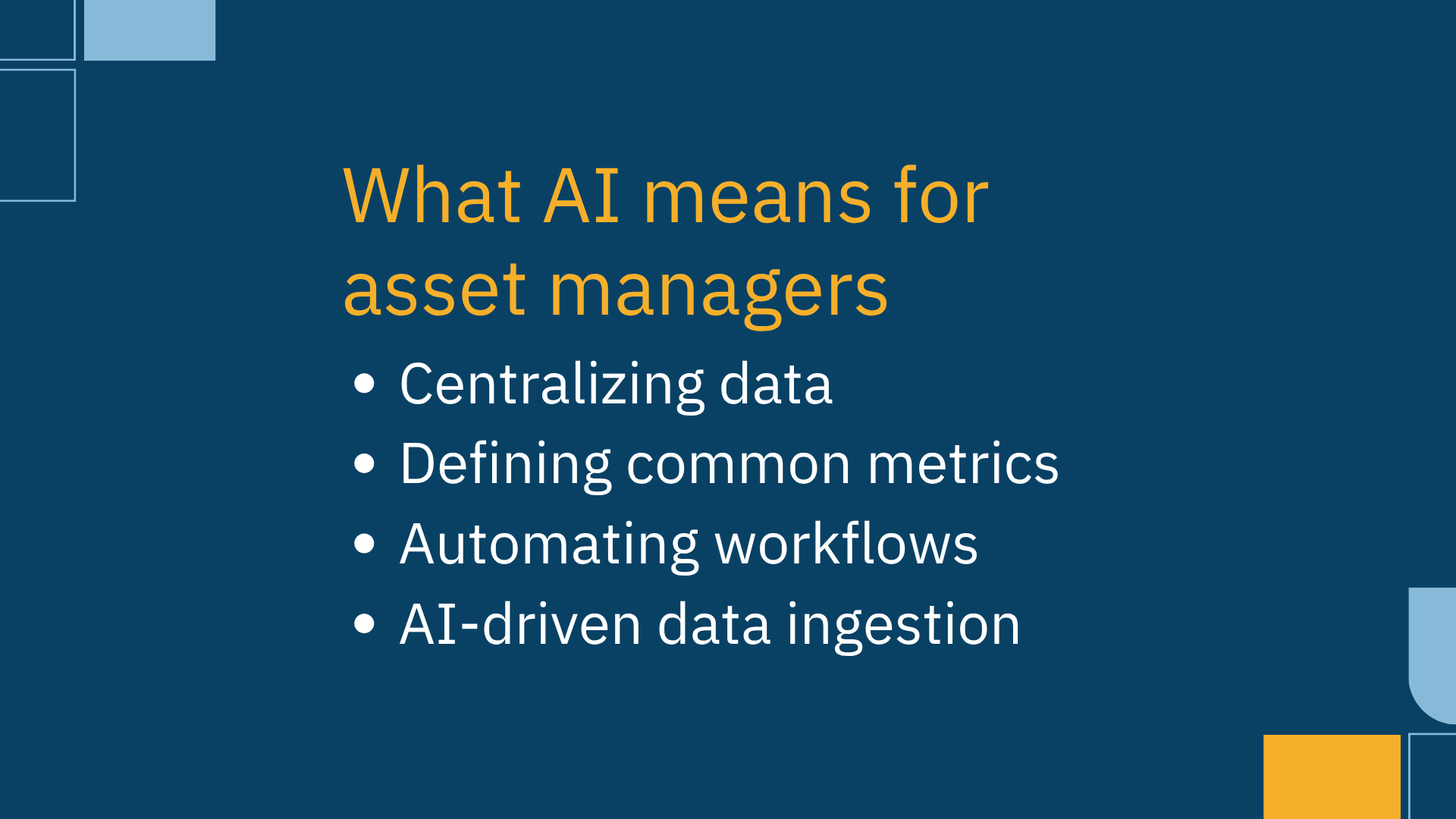
Across all perspectives, the session reinforced a clear vision for the industry’s next evolution: intelligent operations aren’t achieved by adding more tools, but by connecting and standardizing the ones that already exist.
For asset managers, that means:
- Centralizing data across equity, debt, and property types
- Defining common metrics and financial language across teams
- Automating recurring workflows to free up time for analysis
- Using AI to automate data ingestion and validation to save time while ensuring every decision can be based on accurate, trusted information
Final thoughts: redefining how fundamentals are executed
As the discussion made clear, AI won’t replace the fundamentals of asset management. What it will do is redefine how those fundamentals are executed. The firms that win the next cycle won’t just have access to more data, they’ll know how to centralize, standardize, validate, and act on it.
For Pereview, that’s the real promise of modernized, intelligent operations – not more technology for technology’s sake. It’s about empowering asset managers with a complete, accurate picture of their portfolios so they can make smarter, faster decisions that drive performance and value.
